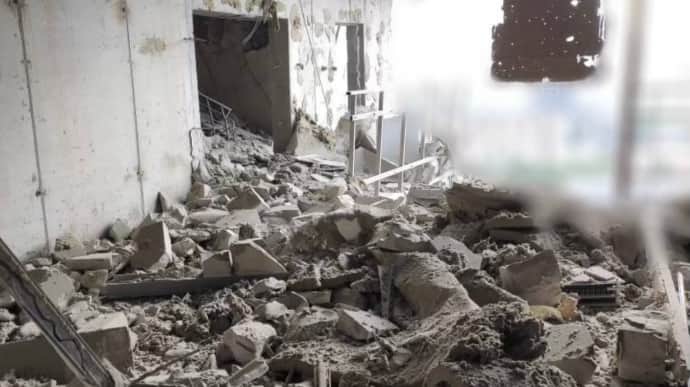Daily Flyer - May 14, 2024
A voice of Ukraine to the West

50% of Ukrainians in Poland, Germany, Czechia, say they are 'less likely to return' to Ukraine - poll
Half of Ukrainian refugees in Germany, Poland, and Czechia are "less likely to return" to Ukraine, according to a poll by the Kyiv International Institute of Sociology (KIIS) released on May 14.
Eurostat reports that over 4.2 million Ukrainian refugees are currently registered for temporary protection in EU states, allowing them to legally access housing, find work, and receive social benefits. Poland hosts approximately 1 million of these refugees, the highest number among all countries.
The KIIS poll revealed that 66% of respondents were "completely" or "rather satisfied" with their lives in Germany, Poland, and Czechia.
While only 7% of respondents had already received citizenship from another country and 12% had submitted documents, an additional 45% expressed a desire to obtain citizenship.
When asked about factors that would influence their decision to return, safety and the proper functioning of critical infrastructure were among the most frequently cited reasons. Furthermore, 26% stated they would not go back until the full-scale invasion was over.
"The survey results indicate that a significant portion of Ukrainian refugees are losing (or have already lost) their connection with Ukraine," said Anton Hrushetskyi, the executive director of KIIS.
"On a personal level, many Ukrainians abroad face a challenging decision: to establish roots in a new place or wait for the right moment to return."
Hrushetskyi added, "If there is a sincere desire to return, the government and Ukrainian society must demonstrate support."
These findings highlight a growing hesitance among Ukrainian refugees about returning to their homeland. A study conducted in January found that around 64% of respondents planned to return.
Russian forces target apartment buildings in central Kharkiv

The quiet afternoon in Kharkiv was shattered by the thunderous sounds of explosions as Russian forces launched a devastating attack on a residential building in the city's central district.
The initial reports came from Oleh Syniehubov, Head of the Kharkiv Oblast Military Administration, who announced on Telegram, "The enemy struck multiple targets, including a residential building in Kharkiv's central district. The threat of additional attacks persists!" This grim news was echoed by Kharkiv Mayor Ihor Terekhov, who confirmed, "There is information on a hit on an apartment building in the city centre."

In the hours leading up to the attack, Ukraine’s Air Force had warned residents about the imminent danger of Russian guided bombs targeting Kharkiv Oblast. The warning became a harsh reality when the ninth floor of a high-rise apartment building was struck. Although a fire did not break out, the impact left the building scarred and its residents shaken. Mayor Terekhov noted that emergency responders were going door-to-door to ensure the safety of those who might have been injured in the blast.
The residential building wasn't the only target. Russian forces also hit an area lined with garages, igniting fires in about ten of them. Another high-rise apartment building in the vicinity was also damaged, adding to the day's toll of destruction.
Emergency services and volunteers swiftly converged on the scenes of the attacks, working tirelessly to manage the chaos and aid the victims. Ihor Klymenko, Minister of Internal Affairs of Ukraine, reported that sixteen civilians were injured in the attack, including three children. The minister underscored the critical importance of following official safety instructions during air raids to prevent further casualties.
"The survey results indicate that a significant portion of Ukrainian refugees are losing (or have already lost) their connection with Ukraine," said Anton Hrushetskyi, the executive director of KIIS.
The strike on Kharkiv, a city already weary from the ongoing conflict, underscores the persistent and unpredictable danger facing its residents. As emergency crews continued their work into the night, the community braced for the possibility of further assaults, their resolve undiminished but their need for peace ever more pressing.
UK intelligence analyses on the reasons of the Russian offensive in Kharkiv Oblast
UK Defence Intelligence has analyzed recent offensive actions by the Russian army and provided insights into why the Russian Federation is targeting Kharkiv Oblast.
Analysts highlight that the newly formed northern group of Russian occupation forces has gained control of several villages in Kharkiv Oblast. Intense fighting is currently taking place for the border town of Vovchansk, which UK analysts believe is almost certainly Russia's immediate target.
"By opening up an additional axis of attack, Russia is almost certainly attempting to divert Ukrainian resources away from other parts of the front line and to threaten Kharkiv, the second largest city in Ukraine," UK Defence Intelligence stated.
Despite these aggressive maneuvers, UK analysts remain skeptical about Russia's capacity to capture Kharkiv without significantly increasing their combat power in the region. They assert that achieving this objective would require attracting substantial additional forces to Kharkiv Oblast, a move that seems unlikely given the current disposition of Russian troops.
The situation remains fluid as Ukrainian forces continue to defend against these new offensives, striving to protect Kharkiv and its surrounding areas from further incursions. The assessment from UK intelligence underscores the strategic significance of Kharkiv in the broader conflict and the ongoing efforts by Russian forces to destabilize and stretch Ukrainian defenses.

